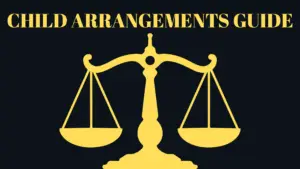How to Resolve Child Arrangement Disputes
When parents cannot agree between themselves on child arrangements, there are several steps they can take to try and resolve the dispute:
If you’re already struggling to reach agreement, it helps to understand the formal legal process. Our step-by-step Child Arrangements Order guide walks you through exactly what happens when court becomes necessary – and what to expect at each stage.
Quick Navigation:
Out-of-Court Options
- Mediation: Mediation is a process where an independent mediator helps parents to reach an agreement about child arrangements. Mediators are trained to help parents communicate effectively, identify areas of agreement, and work towards a mutually acceptable solution. Mediation is usually voluntary, but in some cases, the court may require parents to attend mediation before going to court. If you’re considering this option, our family mediation service can help you arrange a MIAM and understand what to expect from the mediation process.
- Negotiation: Parents can also try to negotiate directly with each other to reach an agreement on child arrangements. This can involve discussing the child’s needs and coming up with a plan that works for both parents. Negotiation can be done through informal discussions, email, or through solicitors.
- Collaborative law: Collaborative law is a process where parents work with their solicitors to reach an agreement on child arrangements without going to court. In collaborative law, both parents agree not to go to court and instead work together to find a solution that works for everyone.
- Court proceedings: If parents are unable to reach an agreement on child arrangements through mediation, negotiation, or collaborative law, the next step is to file an application to court for a Child Arrangements Order.
Child Arrangements Order Process
When a parent applies for a Child Arrangements Order (CAO), it means they are seeking legal help to determine who the child will live with, spend time with, and have contact with. The following steps typically follow:
- Mediation: The court will usually expect parents to attempt mediation before proceeding to a hearing.
- Court proceedings: If mediation fails, court proceedings will begin. A hearing will be held to identify issues and gather evidence.
- Fact-finding hearing: This is held when serious allegations are made and need to be resolved before progressing.
- Welfare checklist: The court applies this to evaluate what’s best for the child based on age, needs, and circumstances. Want to understand how this checklist works in practice? Our blog on the Welfare Checklist breaks down each factor the court considers when making decisions.
- Court order: A final order will outline where the child lives, contact schedules, and any additional terms.
The Role of Social Workers
When disputes arise, social workers from CAFCASS or Children’s Services may be called in to help. These professionals provide independent assessments of the child’s needs and make recommendations to the court.
This is usually done via a Section 7 report.
What Is a Section 7 Report?
A Section 7 report is a document written by a social worker appointed by the court. It typically includes:
- The child’s living arrangements, schooling, relationships, and medical needs
- Interviews with parents and the child
- Observations of parent-child interaction
The report presents recommendations based on the child’s welfare and helps the court decide on appropriate arrangements. While the court is not obliged to follow the report, it is given serious consideration.
For a full walkthrough of what to expect – and how to prepare – read our guide: What is a Section 7 Report? A Guide for Dads.
In summary, CAFCASS or Children’s Services can provide essential input through Section 7 reports, which play a pivotal role in shaping child arrangement decisions.
Should You Consult a Social Worker Before Applying?
Fathers may want to consult an independent social worker before applying for a CAO. Here’s why:
- Expert advice: Understand the CAO process, what’s required, and how to prepare evidence.
- Child’s best interests: Gain impartial insight based on professional understanding of family dynamics.
- Section 7 support: Learn whether a report would help your case and what evidence supports it.
- Preparation for court: Get help preparing statements, managing stress, and presenting your case clearly.
In summary, consulting an independent social worker before applying for a CAO can improve your preparation, boost your confidence, and potentially lead to a better outcome for your child.
That’s exactly what we offer through our McKenzie Friend support — giving you expert preparation, emotional reassurance, and strategic insight from someone who’s worked inside the system.
🧠 Insider Insight: Lach, our founder, is a qualified social worker who used to write Section 7 reports for CAFCASS — the very reports that influence court outcomes. Now he helps dads respond to them. Learn more about Lach’s background.
👉 Learn more about how we can support you or book a free consultation today




